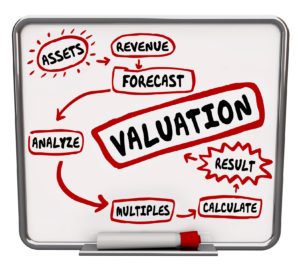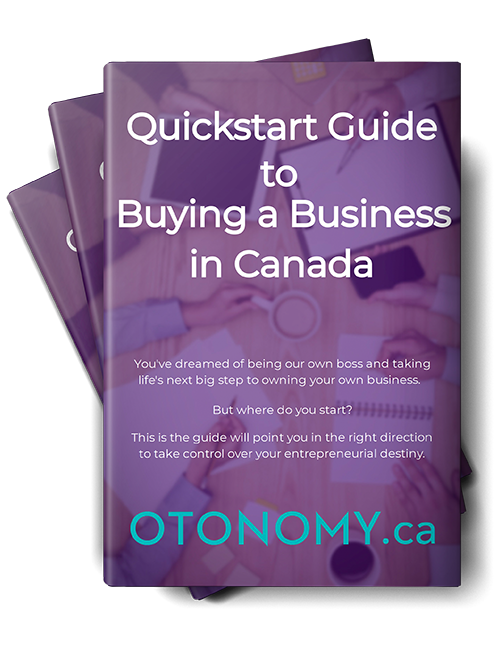Selling a business is a process that varies from one individual to another. That’s because each company has an industry it falls under, different cash flow and assets, and vision. Then there are also factors to consider when making any business sale.
The time it takes to sell your business primarily depends on your efforts, whether or not you’re getting help, and knowing where to list, but on average, selling a small business takes six to nine months.
Read on to learn the steps followed in the sale of a business, documents required, factors that influence the time it takes to sell, and strategies that can help minimize the selling time.

Process of Selling a Small Business
Selling a small business is a process. And for the process to be successful, there are steps you should follow. These include:
Step #1: Analyze the Business’s Status
Before determining your “go live” date, you must carefully analyze your needs and priorities as the business owner.
It’s during this stage you’ll also assess the completion of taxes and audits. You’ll also harmonize the external image of the business and the M&A marketing schedule, and doing so involves the following:
a) Determine What Your Business Is Worth
Generally, a business is worth multiple of its profits. Based on the size of the industry and the deal, this can range from 2 to 10 times the business’s profit. Spend a few weeks determining this. Seeking the assistance of a certified business valuator is always a wise decision.
For smaller businesses, their worth mostly averages between two to three times the profit. It can be three to five times the profit for medium-sized businesses, while large ones are often valued at five to ten times the profit.
You can read more on how to value your business here.
b) Prepare Your Financials
Selling is a time-consuming process. You have to closely examine the business’s financial information and assets and then write a detailed report, which you’ll make available to potential buyers.
This report includes both the tangible and intangible assets, expenses, profits, and any outstanding liabilities (debts) for which your business is responsible.
c) Find an Experienced Broker or Investment Banker
Seeking the services of a broker or an M&A advisor comes in handy. If done correctly early on, it’s likely to speed up the time it’ll take to sell the business. It will also take some pressure off the seller’s shoulders.
Often, working with a broker results in the business garnering a higher valuation because these are experts who can bring imperative strategic insights to the selling process. It is critical however that as a seller, you perform your own due diligence before hiring a broker as not all are created equal. While some bring great value to the selling process, others may interfere with finding the right successor.
Watch for upfront fees, high commissions, long-term commitments, marketing strategies, and rates of success.
d) Come Up With an Executive Summary of the Business
In this document, clearly and concisely summarize the key points of the operations your business undertakes. Ensure to include its mission, products or services, management, financial data, and competitive edge.
This executive summary will provide an overview that will help buyers to compose their offers.
Step #2: Put Your Business on the Market
Putting your business on the market is probably the most time-consuming stage of the process.
At this point, you market your business to potential strategic buyers who may be seeking to acquire a business similar to yours. Here’s what you need to do:
a) Prepare For Listing
The first thing to do here is to develop a list of prospective buyers with the help of your advisors.
Compile all information regarding the business sale, including public listing content and confidential details. Include these details in a selling memo which you’ll avail to buyers who may have signed a non-disclosure agreement.
b) Focus on Marketing Efforts
The fact that you’ve listed your business on a website such as Otonomy.ca doesn’t mean you get to sit back and relax. Helping spread the word can speed up the sale process as more buyers will get the information quicker.
Also, don’t limit yourself to posting on one website only. If possible, post the business on multiple sites as this will give you access to many users of those sites.
Utilizing tools like social media will help spread the word faster too. Take advantage of the social media share buttons on your listing to get the word out!
Step #3: The Buying Process
Once your business is out there on the market, interested buyers will express their desire to buy it through their respective offers. Negotiate the best offer based on your expectations around the price, among other essential factors.
Unfortunately, this is not as easy a task as it may sound. Some buyers will make offers that are too low, and some you’ll find quite offensive. Ensure you’re alert during negotiations to get yourself the best deal.
Negotiations may take several weeks or even months. However, at the end of it all, you’ll feel pleased knowing you got yourself the best offer for all your hard work.
It’s standard practice to give buyers a period of 60 to 120 days to perform due diligence and verify the financials of a business. They get a chance to validate all the information presented to them.
Step #4: Close the Deal
It’s now time to celebrate. You’ve settled on a buyer and agreed on everything. All that’s left now is to sign the final contract that officially transfers ownership from you to the new buyer.

Documents Required When Selling Your Business
Potential buyers are typically interested in detailed information regarding the operational and financial health of your business.
With regards to general information, have the following things ready with you:
- One-page fact summary sheet providing an overview of your business
- Specific programs that the website (if applicable) uses, as well as how to work them.
- Your business security reports.
- Indexes of all webpages
- Media mentions if any such as publicity or awards
- A list of the employees
Having a marketing strategy highly influences a buyer’s decision. Therefore, it goes a long way if you can provide information such as:
- Keyword research completed
- Statistics within search engine rankings
- Keywords that have already been targeted
- Competitor information and research
- Visitor statistics and demographics
- Sales history
- Conversion rates.
Finally, prepare legal & financial documentation that includes:
- Proof of ownership
- Transfers
- Revenue documentation
- Profit reports
- Intellectual property rights
- Cash flow analysis
- Real estate holdings info
- Customer base analysis
- Appraisals
- Expense reports
- ROI analysis
Factors Affecting the Speed of Sale
Below are the factors that influence how fast you can sell a business:
Asking/Selling Price
The current market asking price is the top factor that influences how long it takes to sell a business.
As the sale price increases, the number of days it takes to sell increases. That’s because a higher purchase price leads to a reduced number of potential and financially capable buyers.
Also, buyers with the financial resources to invest in larger businesses tend to request more time in the due diligence process. They often seek the services of several professional advisors who take up more time assessing the opportunity. Note that these professional advisors will also take part in the decision-making.
Something else to note is that larger businesses usually have operations that tend to be more complex, inviting secondary investors or lenders to be involved before a deal is sealed.
On the other hand, small businesses are easier to acquire, with payments often being made with cash.
The bottom line is, a reasonable initial asking price will result in a quicker sale of your business, no matter the size.

Type of Buyer
The type of buyer ready to acquire your business impacts the time taken to finalize a sale. For example, a buyer who’s going to pay a significant sum of money typically analyses every little detail.
There are three main types of buyers, and each will have a different effect on the selling timeline.
NOTE: In the Otonomy.ca article “Looking For Buyers? How To Get Your Business For Sale Listing Noticed“, there are four types of buyers as we look at motivation types. The list below looks at the types of buyers as it affects the selling timeframe.
1. Individual Buyers
These are the quickest buyers, but there’s a caveat to that. Their financing may come from one of a variety of loan programs available. These programs can take about 30 to 90 days from when the buyer applies for the loan to the time the deal is closed.
One of the quickest and easiest ways to sell your business is by selling it to one of your employees. However, other factors such as relocation or leaving their job will influence the overall timeline.
2. Strategic Buyers
These usually take the longest. That’s because these buyers have an intimate familiarity with your industry. Also, navigating regulatory and corporate approvals will drag out the due diligence process most of the time.
Often, what consumes most of your time is the creation of a post-merger integration plan. Having a detailed integration plan will maximize the likelihood of success in strategic acquisitions.
Companies that can create synergy would be ideal for strategic buyers. It may include your competitor or a firm that provides service after or before your product or service.
3. Financial or Corporate Buyers
The most common financial buyers are private equity groups, and these often fall in the middle.
If the buyers acquire your business as a consolidation or roll up into a similar company they already own, the sale process will be quicker.
On the other hand, the business or industry may be new to the buyer, necessitating a deeper due diligence process. Corporate or financial buyers are often the ones who acquire large companies.
Business Location
The physical location of a business enterprise can also influence the time taken to sell it.
The time taken to sell will be reduced for businesses located in areas experiencing high population growth rates.
Among other numerous favorable factors, the availability of many buyers makes it easier and faster to sell a business in these areas.
Business Industry
The number of days your business will be on the market can be determined by the industry in which the company operates.
Businesses in desirable industries such as construction and technology are likely to sell quicker than those in low-growth sectors. Bear in mind that the potential buyer is buying a business and the lifestyle it offers.
Business Structure
Would your business run well without you in case you took an extended vacation of, say, two months? Be honest.
If the business can run in your absence, it means you can easily and quickly sell your business. Why? Because a buyer’s ability to run your business comfortably is essential.
In circumstances where key vendor and customer relationships will make a quick exit when you leave, or only you can make critical decisions, then getting a buyer with the skills to fit into your shoes can be a daunting task.
That’s why it’s always wise to be hands-off in daily operations as much as you can. Although this is much easier said than done, it can hugely impact the value of your business and its sale time.
Revenue and Cash Flows
Of course, most buyers will want to inherit a business with positive cash flows and healthy revenue.
A business’s financial health and how easy it is to sell it go hand in hand. It’s easier to sell a business that’s exhibiting growth and positive cash flow than a business on a downward trajectory.
A business valuation can also come in handy here. It would help your potential buyers understand your business’s operations compared to similar businesses, enabling them to identify opportunities to improve.
Financing Options
A business with various financing options on the table is bound to sell quickly.
Most businesses tend to sell more quickly when the owner is willing to finance a portion of the sale. Cash deals are sealed quicker, although this is more common with lower-valued small businesses.
Bank financing is done chiefly through the Canada Small Business Financing Program. Nevertheless, with bank financing, the waiting period is extended by around 30 to 90 days as you wait for the loan to be processed.
Seller Availability
What documents would your buyer typically want to see? Having all these documents is one of the best ways to speed up the selling process.
Compile at least three years of detailed financial statements as experts recommend, including balance sheets, income statements, cash flow statements, and the seller’s discretionary earnings.
Although a broker assists in the selling process by availing a list of items potential buyers will want to go through, it’s best to be present as the seller to answer any questions the buyer may have for you.
If all parties are available and quick to respond to any questions and clarifications, the selling process will no doubt run faster. However, if either of the parties is hesitant or slow, the process is likely to lag, and instead of the few weeks the process would typically take, it can take several months.
Quick FAQs
Here are some frequently asked questions:
How Much Is My Business Worth?
You can sell your business at the price the market is going to pay. And the buyer is the one who determines the price of a business.
That said, the worth of a business is generally a multiple of its earnings. It refers to a value applied to your business’s profit.
How Do You Price Your Business for Sale?
You price your business based on the amount of money it makes.
In situations where the business makes no money, your price is based on its assets. If it’s making a little money, you’ll price it according to the seller’s discretionary income. And if the business makes a lot of money, the price will be a multiple of EBITDA (earnings before interest, taxes, depreciation, and amortization).
How Long Does It Take For a Business to Sell?
Generally, large deals take longer timelines to sell a business than smaller deals. On average, it takes approximately six to nine months to close a deal.
How Can You Sell Your Business Quickly?
You can sell your business much quicker by ensuring it’s correctly priced and with the correct terms.
Offering your business to someone with no up-front payment and an earn-out determined by performance is one of the best ways to sell it quickly.
You can present this option to a business partner, competitors, employees, or someone in your chain or network.
What Type of Business Is Ideal to Sell?
One can sell a business from any industry.
Nevertheless, variations factor in when assessing valuation from one industry to another. Service companies, property management, technology, logistics and transportation, and home services are currently some of the most attractive sectors.
Who Is the Best Broker to Sell My Business?
The best broker to help sell your business depends on the size of the business.
If it’s small, it might be best to try brokers who specialize in selling companies with less revenue. On the other hand, if your company is larger, go for a broker specializing in selling high-revenue-generating companies.

Conclusion
Selling a small business can be as challenging as it is rewarding. It certainly is rarely easy, and there’s no one-size-fits-all answer for how to do it. What we can say with certainty is that you should have realistic expectations about the process and the price you are asking before even starting down this path. Whether your company will be on the market for a few days, or over many months – it’s worth taking time to prepare yourself as early as possible. You’ll make better decisions when faced with tough decisions like offers that differ from your asking price.
Feel free to consult a broker’s services if you feel lost during the business sale process. Whether you decide to use a 3rd party agent to help with the sale, or if you decide to sell on your own, Otonomy.ca is here to help you get the highest exposure to the business you are selling, attracting the greatest number of potential buyers.




